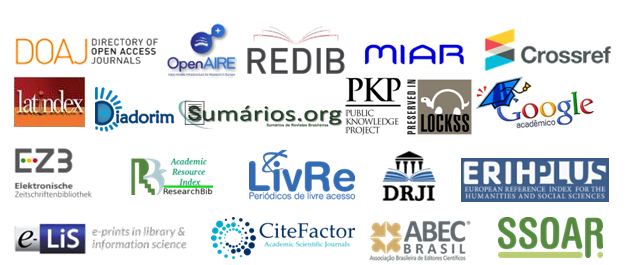Health Professionals in the TOPAMA Region and their role in Health Surveillance
DOI:
https://doi.org/10.20873/DEZ_23_12Abstract
The practices related to health surveillance are integrated in health regions to strengthen integrality and care management, thus aiming to outline the profile and practices in health surveillance, through self-assessment of managers and health workers from 30 municipalities in the TOPAMA region. A cross-sectional study was carried out through the application of self-answered questionnaires. The profiles of professional activity, participation in training, indication of health surveillance activities, use and level of knowledge about health information systems were delineated. A descriptive analysis of the data was performed, separated by profiles. Of the 569 respondents, 19 were municipal managers and 59 health surveillance managers, among whom the levels of education and knowledge of the legal frameworks of health were higher than those of professionals who are members of health surveillance and primary care teams. Among these, 61.0% did not participate in continuing education activities and 53.6% had little knowledge of the municipal health plan, and self-reported knowledge of health information systems with basic level was reported by 76.3% for SINASC, similar to what was observed in other systems. The results are close to the literature reports of weakening actions, and denote a path that enables educational intervention to strengthen the quality of services in the region.
Downloads
Published
How to Cite
Issue
Section
License
Copyright (c) 2023 Wendy Moura Sanches, Renata Andrade de Medeiros Moreira, Paulo Fernando de Melo Martins, Rhavenna Thais Silva Oliveira, Quézia Catharinne Cavalcante de Melo, Renata Junqueira Pereira

This work is licensed under a Creative Commons Attribution-NonCommercial 4.0 International License.
Autores que publicam nesta revista concordam com os seguintes termos:
1. Autores mantém os direitos autorais e concedem à revista o direito de primeira publicação, com o trabalho simultaneamente licenciado sob a Creative Commons Attribution License (CC BY-NC 4.0), permitindo o compartilhamento do trabalho com reconhecimento da autoria do trabalho e publicação inicial nesta revista.
2. Autores têm autorização para assumir contratos adicionais separadamente, para distribuição não-exclusiva da versão do trabalho publicada nesta revista (ex.: publicar em repositório institucional ou como capítulo de livro), com reconhecimento de autoria e publicação inicial nesta revista.
3. Autores têm permissão e são estimulados a publicar e distribuir seu trabalho online (ex.: em repositórios institucionais ou na sua página pessoal) a qualquer ponto posterior ao processo editorial.
4. Além disso, o AUTOR é informado e consente com a revista que, portanto, seu artigo pode ser incorporado pela DESAFIOS em bases e sistemas de informação científica existentes (indexadores e bancos de dados atuais) ou a existir no futuro (indexadores e bancos de dados futuros), nas condições definidas por este último em todos os momentos, que envolverá, pelo menos, a possibilidade de que os titulares desses bancos de dados possam executar as seguintes ações sobre o artigo:
a. Reproduzir, transmitir e distribuir o artigo, no todo ou em parte sob qualquer forma ou meio de transmissão eletrônica existente ou desenvolvida no futuro, incluindo a transmissão eletrônica para fins de pesquisa, visualização e impressão;
b. Reproduzir e distribuir, no todo ou em parte, o artigo na impressão.
c. Capacidade de traduzir certas partes do artigo.
d. Extrair figuras, tabelas, ilustrações e outros objetos gráficos e capturar metadados, legendas e artigo relacionado para fins de pesquisa, visualização e impressão.
e. Transmissão, distribuição e reprodução por agentes ou autorizada pelos proprietários de distribuidoras de bases de dados.
f. A preparação de citações bibliográficas, sumários e índices e referências de captura relacionados de partes selecionadas do artigo.
g. Digitalizar e / ou armazenar imagens e texto de artigo eletrônico.


